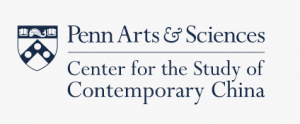Center for the Study of Contemporary China Postdoctoral Fellows Program

The Center for the Study of Contemporary China (http://cscc.sas.upenn.edu/) at the University of Pennsylvania invites applications to fill up to two postdoctoral fellowship positions for the 2026-2027 academic year. Applications are welcome from scholars who have received their Ph.D. or equivalent degree in the last two years, or who expect to complete their degree by June 30, 2026. The term of appointment is July 1, 2026 - June 30, 2027.
The CSCC postdoctoral fellowships support research on all aspects of contemporary China that fall within the broad mission of CSCC: to advance Penn’s leadership in programs, research, and scholarship about the political, legal, economic, and social factors shaping China and its role in the world today. The Center provides an institutional home for campus-wide collaboration among departments, programs, institutes, faculty, and students at Penn engaged in work pertaining to contemporary China. CSCC activities include conferences, roundtables, a speaker series, and a distinguished lecture series.
Fellows at the CSCC pursue their own research and participate in the activities of the Center. Because fellows are expected to be fully integrated with the intellectual life of the Center, they must plan to reside in the vicinity of the University of Pennsylvania. Each fellow receives a stipend of $66,300, a $5,000 research fund, and health insurance. The University of Pennsylvania is an EO/AA employer and we encourage applications from women and minorities. CSCC will start to accept applications on December 1, 2025 and begin reviewing applications on February 15, 2026. To receive full consideration, your application should be received by February 15, 2026. Applicants will be notified of the outcome by March 15, 2026. To apply, please send a CV, a research statement, a writing sample, and three letters of recommendation to cscc-contact@sas.upenn.edu.

